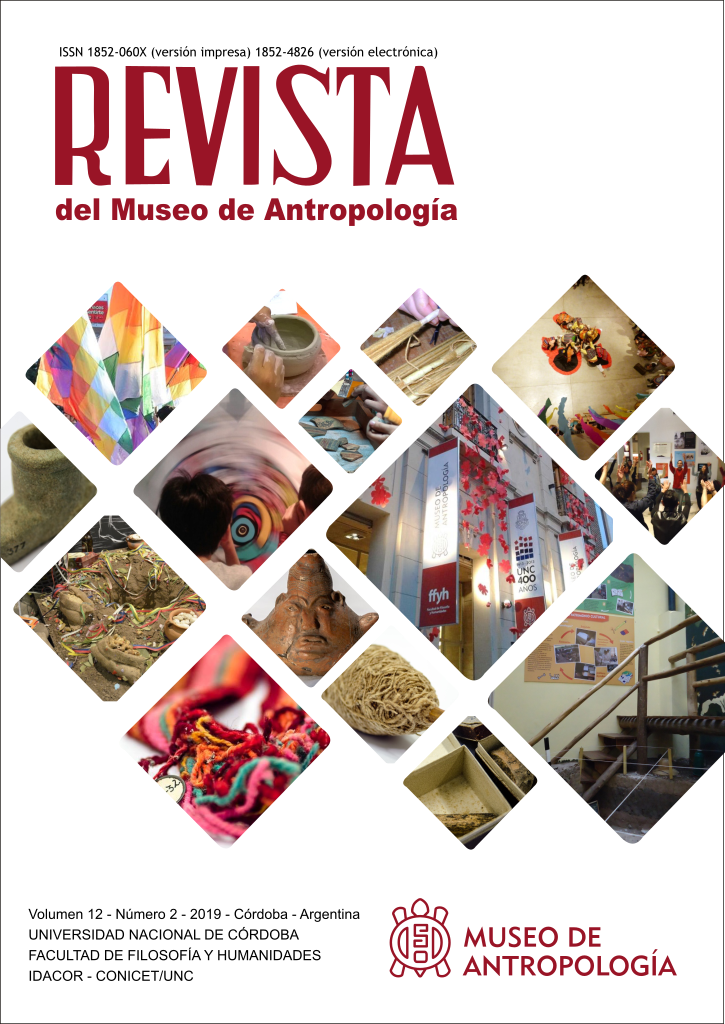Passage. Experiences of Freedom in transitional spaces
DOI:
https://doi.org/10.31048/1852.4826.v12.n2.21187Keywords:
Social museology, Memory, Transformation, ParticipationAbstract
In this work we present five fragments on social museology processes in Portugal, which demonstrate the liberating potential in urban space. In the five fragments, which we use using the inspiration of Walter Benjamim, we propose a recognition of the world as relevance, reflecting from the museological poetics in search for the right to memory as a process of freedom and creation of cognitive justice in spaces of citizenship. We start from an approach to the transforming potential of the idea of liminality, of those who find themselves in frontier or renewal spaces, where they are not what they seek to be, and are no longer the former beings, they are in an interstice that allows everything. Of those who are in a moment of passage. Then, we analyze the processes of creating sustainable communities from heritage education. With these questions, we have analyzed five cases in Portugal to defend that social museology can be a tool for social transformation for communities in situations of liminality, and that this transition can be liberating and emancipatory by exploiting the potential of social museology, such as participatory inventories, heritage education and co-creation practices.Downloads
References
Benjamim, Walter (2011) A origem do Drama Barroco Alemão. AnneBlumen.
Benjamim, Walter (2009). Passagens, Minas Gerais, UFMG
Cassano, Franco e Leite, Pedro Pereira (2017). Epistemologias Meridionais: Museologia, Urbanismo e Direitos Humanos, Informal Museology Studies, nº18
Leite, Pedro Pereira (2017). Museologia Social e Dignidade Humana, Lisboa, Marca D’água
Leite, Pedro Pereira (2018). Museologia Social e Paisagens, Informal Museology Studies, nº 19
ONU, (2015) Objetivos de Desenvolvimento Sustentável, UN
Ricœur, P. (2000). La mémoire, l’histoire, l’oublie, Paris Editions du Seuil.
Santos, Boaventura de Sousa (2000). A crítica da Razão Indolente, Porto Afrontamento.
Stephen R. Sterling (2001). Sustainable Education: Re-visioning Learning and Change, Green Books for the Schumacher Society.
Turino, Célio (2010). Ponto de Cultura: O Brasil de Baixo para Cima, São Paulo, Anita Garibaldi.
Valleriani, António (2012). Ermeneutica dell’educazione. Studi in onore di Antonio Valleriani
Yúdice, George (2006) A conveniência da cultura: usos da cultura na era global, Belo Horizonte: Editora UFMG
Downloads
Published
How to Cite
Issue
Section
License
Those authors who have publications with this Journalaccept the following terms:
a. Authors will retain their copyrights and guarantee the journal the right of first publication of their work, which will be simultaneously subject to the Creative Commons Attribution License (Licencia de reconocimiento de Creative Commons) that allows third parties to share the work as long as its author and his first publication in this journal.
b. Authors may adopt other non-exclusive licensing agreements for the distribution of the version of the published work (eg, deposit it in an institutional electronic file or publish it in a monographic volume) provided that the initial publication in this journal is indicated.
c. Authors are allowed and recommended to disseminate their work on the Internet (eg in institutional telematic archives or on their website) before and during the submission process, which can lead to interesting exchanges and increase citations of the published work. (See The Effect of Open Access - El efecto del acceso abierto)












